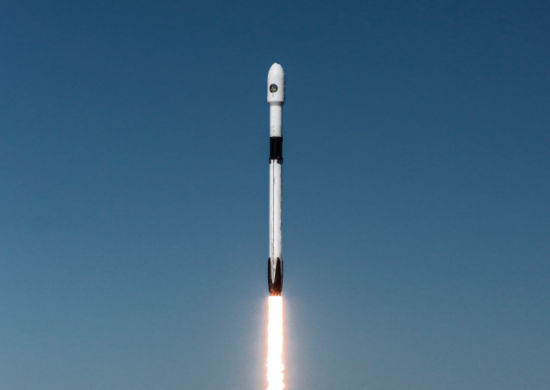SpaceX is scheduled to launch a fleet of Starlink satellites on Monday, February 21, from the Cape Canaveral Space Force Station in Florida. The mission was initially scheduled for a launch on Sunday, but was postponed to Monday due to bad weather.
As it stands, a two-stage Falcon 9 rocket, SpaceX’s most successful workhorse, carrying 49 Starlink satellites is slated to lift off from the base in Florida at 9.44am ET (2.44pm GMT) on Monday. Nine minutes after lift-off, the the Falcon 9’s first stage will return to Earth and land on Space X’s droneship, A Shortfall of Gravitas, which will be anchored in the Atlantic Ocean a few hundred kilometres from the Cape Canaveral Space Force Station.
Also read | China to build lunar base as part of grand 5-year plan to become ‘space power’
The mission, if successful, would mark the 11th successful launch and landing of the particular Falcon 9 booster being used for the mission, which would equal SpaceX’s record for the most number of re-uses of a single Falcon 9 booster, set by a different Falcon 9 rocket in December 2021.
It can be watched live on SpaceX’s website, as well as on SpaceX’s official Twitter handle. Coverage will start 15 minutes before lift-off.
The mission is SpaceX’s fourth major launch of Starlink satellites this year: the company had previously launched three large batches of satellites, two of which came in January, followed by the third on February 3.
Also read | Rocket set to crash into moon of Chinese origin not SpaceX, says NASA
However, the batch of Starlink satellites sent into orbit on February 3 ran into trouble after a solar eruption triggered a geomagnetic storm on Earth. The geomagnetic storm, in turn, increased atmospheric drag on Earth, causing 40 of the 49 Starlink satellites launched on February 3 to come crashing back to Earth. The satellites, however, burned up on atmospheric re-entry, resulting in no space debris or debris hitting the Earth, SpaceX said.
SpaceX has already launched more than 2,100 satellites as part of its ambitious Starlink project, but is far from done and plans to bring that number up to 12,000. The company is also reportedly in talks with international regulators for permission to increase the number of Starlink satellites in orbit to 30,000.






